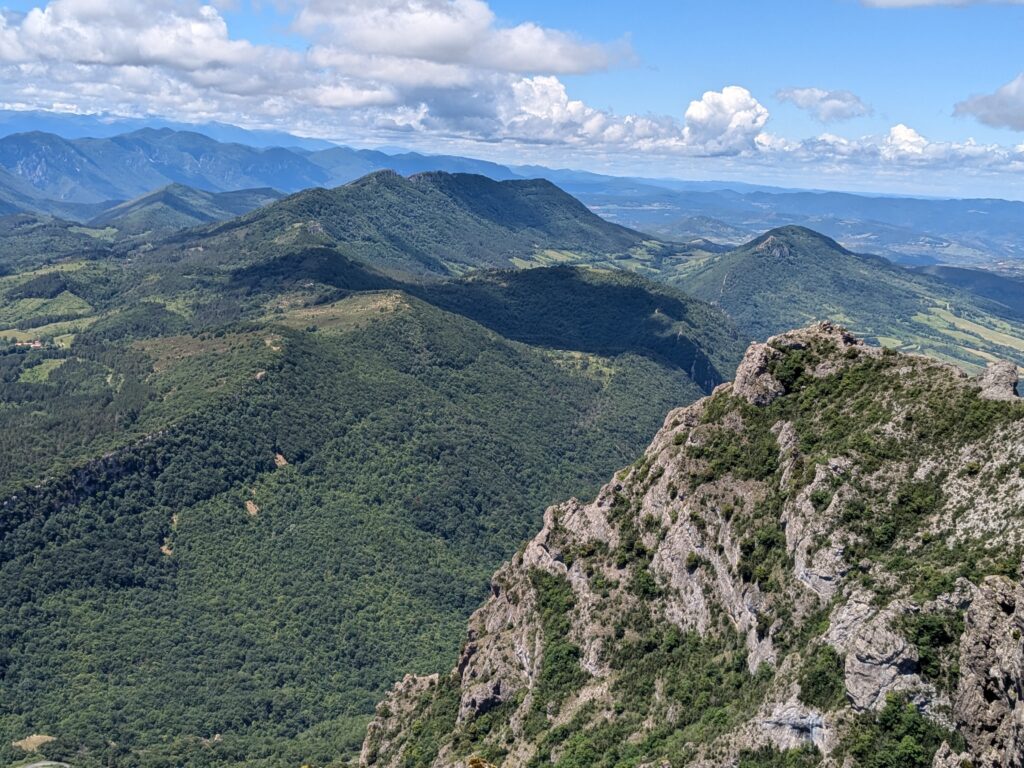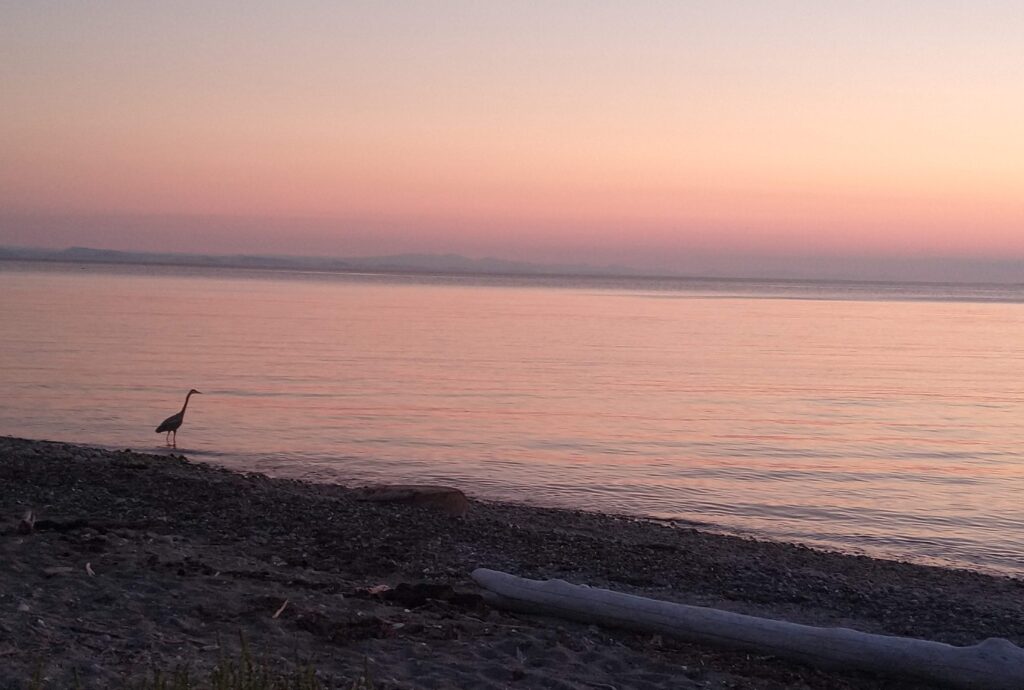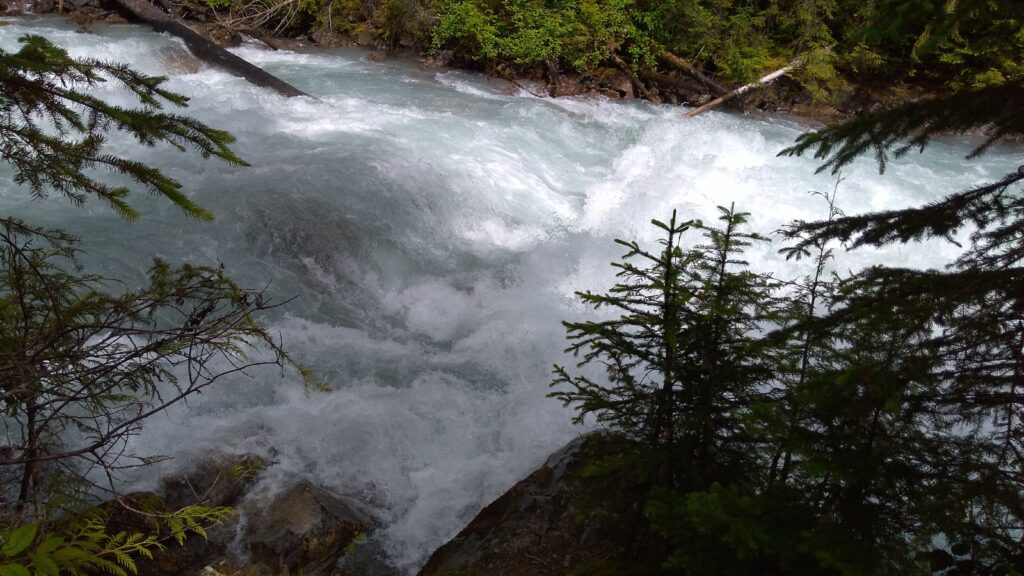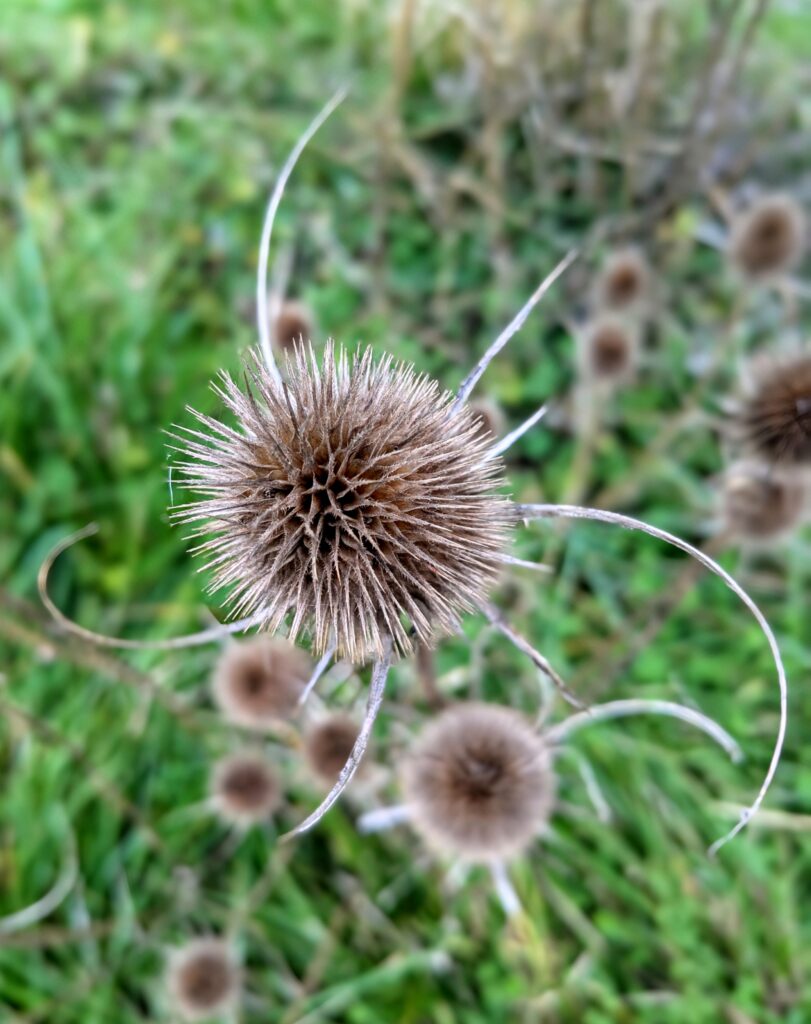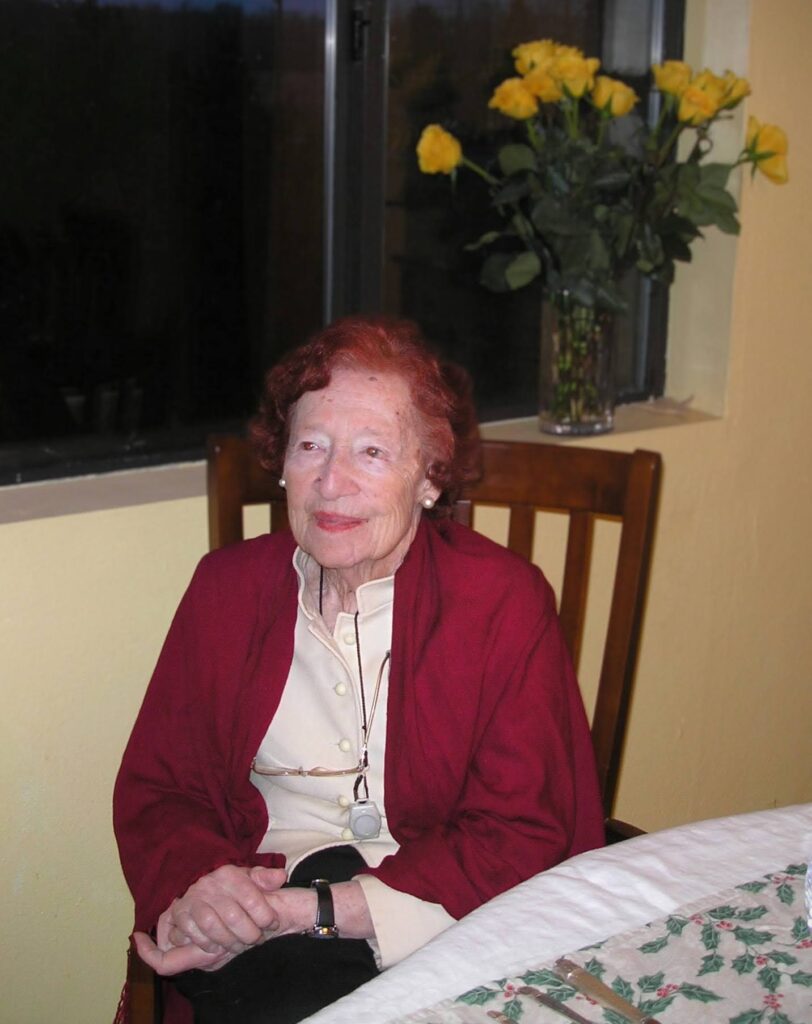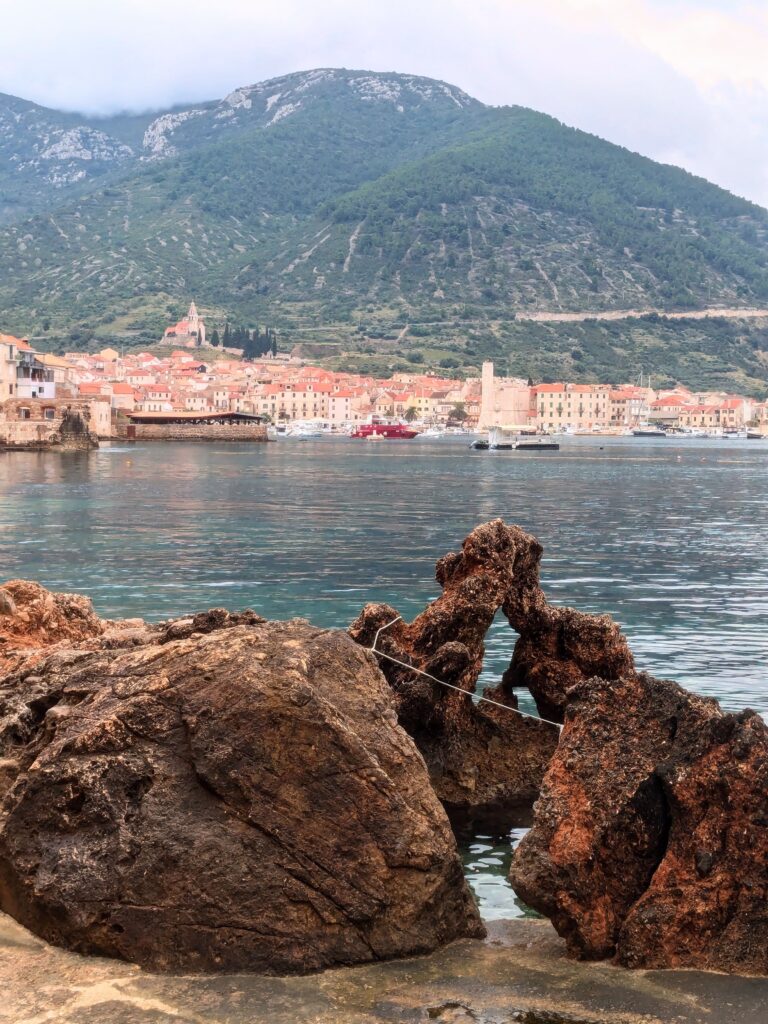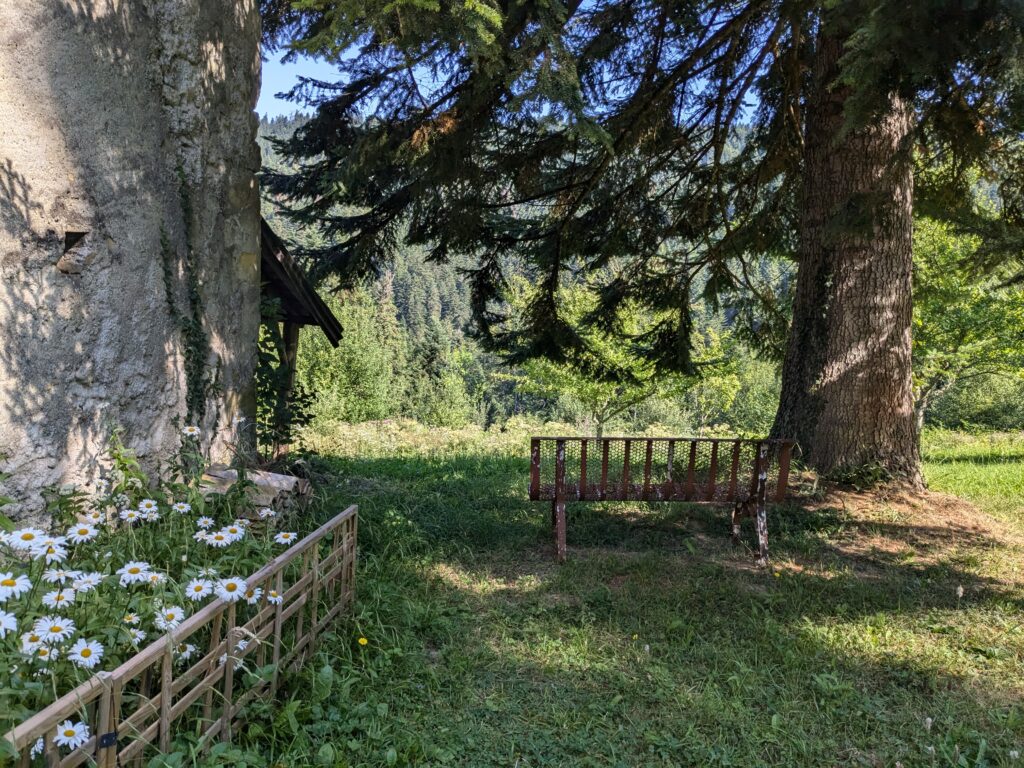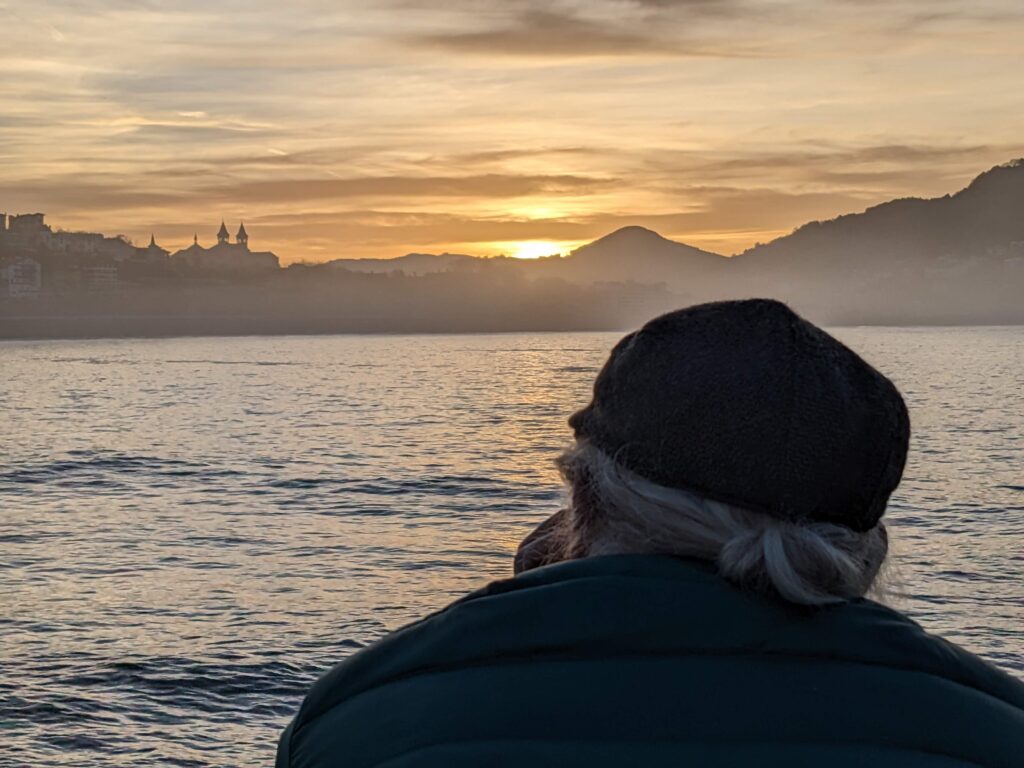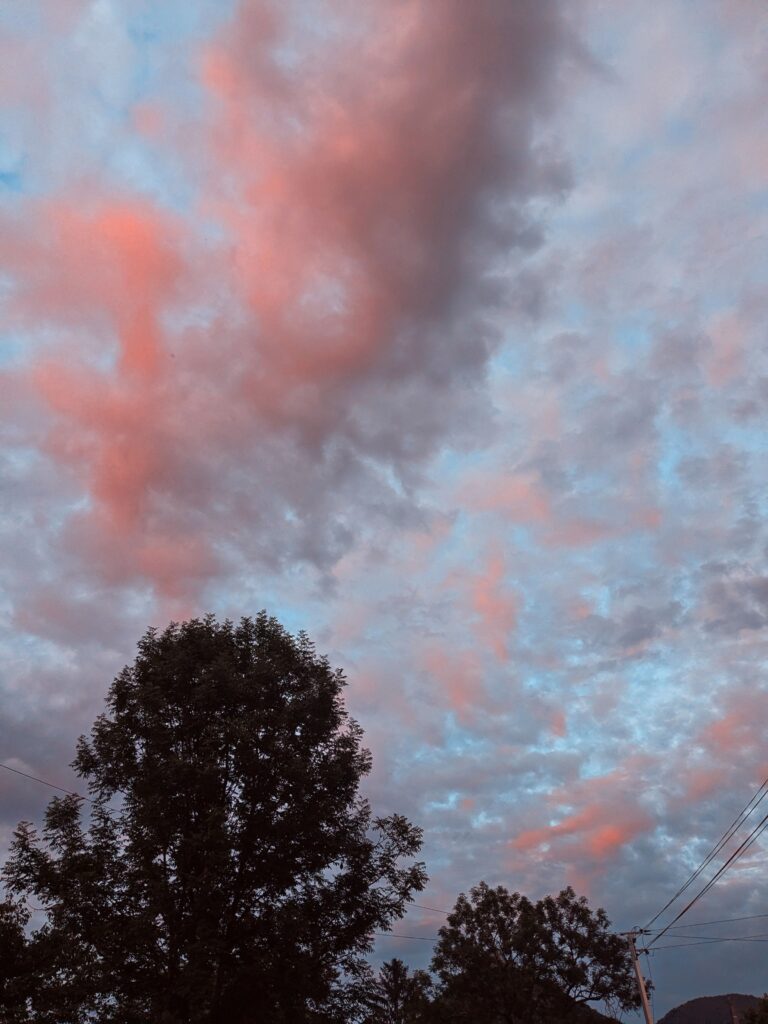That summer, my daughter was just turning nine and my son was four. My biological parents, Toni and Marvin, were making their first trip out to Washington State together to see us. Each had already come separately to give us time to get to know them on their own, these people who were mother and father, grandmother and grandfather who had come into lives already taken shape, like some adventure in a time machine. It must have been July or August. It was hot and sunny. We were all a bit dizzy with excitement. Our relationship had become a true love affair.
We had decided to take them to see the beautiful Oregon coast, a two hour drive away. We’d booked rooms at a lovely inn in the town of Florence, near the Oregon dunes. We got to the inn late in the day, after a leisurely drive down the coast, stopping to show them what had come to be our our favorite spots. They saw the beautiful rocks out in the bay at Cannon Beach where we walked through the tide pools and saw starfish and anemones. We had lunch somewhere in the touristy, quaint seaside town. We stopped to walk a bit along another beautiful beach where the enormity of the Pacific pulled all sense of limitation into the infinity of its waves. We saw the seals and sea lions in LIncoln City. Marvin was paying for everything he could get to first.
After we’d settled in our rooms, we walked over to a great seafood restaurant we’d been to once before. The grownups wanted to eat Pacific Coast oysters and King Crab and the kids, hamburgers and fries, and tastes of everything else but the raw oysters we’d order by the dozens. They’d even eat fresh fish and crab if it were dipped in tartar sauce or melted butter.
It was a late dinner by American standards. By the time we’d finished all that food, washed down with many glasses of Oregon Pinot Gris, the kids had been playing under the table for quite awhile and there was only one other occupied table left. Soon, the two of them had made beds of all the jackets we’d brought for the evening chill and had closed their eyes while they talked together softly.
The grownups had talked and talked. Marvin was a great story teller. We still had a lot of untold material to fill the thirty-five year gap between my birth and our reunion. It was a bit like filling in the constant lover who had recently come into your life. Now we even had a few years of mutual history to draw on. We didn’t stop until we realized we were the only ones left and the staff were mopping the floor.
The summer before, they’d taken my daughter and her cousin, a girl the same age, to England. They’d had a glorious time staying in London and even going as far as Wales where they heard a true Welsh Bard tell stories in an abbey. They’d been to the Tower of London, the Wax Museum and just about every site that kids would enjoy. The two girls had been fed cream teas until their little stomachs began to swell and their cheeks to fatten. When my daughter got back home after two weeks away, the Official Book from the Wax Museum was shared with her little brother almost every night for months, the two of them delighting in the fright that Jack the Ripper and Frankenstein seem to generate inexhaustibly.
They loved their grandparents even more inexhaustibly with an expansiveness that widened out their lives. In his grandpa, Noah found the man who approved of him with every fiber and loved him more than life. They both called him jokingly “our perfect boy”, with his blond wings of hair, intelligence, love of soccer and sweet nature. He would lean in against his grandpa when they read stories together or when the grownups were just sitting around talking. This relationship only deepened over the years. As he grew, Marvin became his mentor and firm supporter. He bought him his first computer at age ten and began teaching him about stock investing soon after.
They doted on my daughter. My younger biological sister, who’s sense of humor even exceeded her father’s, dubbed her “A porcelain doll with a backbone of steel”. She was right on the money. They nurtured her interests, sent her books, spent hours in the garden and on walks and hinged their hearts to hers. She could always talk with them about anything and did, into adulthood. Their experience and beauties shared gave her a richness that has filled her always.
Those moments, lingering over the dinner table with the children dozing at our feet, are one of my warmest memories of that era of life. The next day, we got up, rallied, had a good big breakfast of bacon and eggs with pancakes for the kids and drove off to see the Oregon Dunes.
There we ran up and down the dunes, sliding and laughing for a couple of hours, walking the pathways through the beach grass and standing in awe before the enormity of the rolling hills of sand until we were all exhausted and thoroughly happy. We all seemed to share the same sensibilities.
We spent another night somewhere. I can’t remember where. It was a time when we lived a fairy tale with the king and queen of our rediscovered royal kingdom. Everything was filled with the joy of life and reunion. Everything was possible. They had given us the keys.

